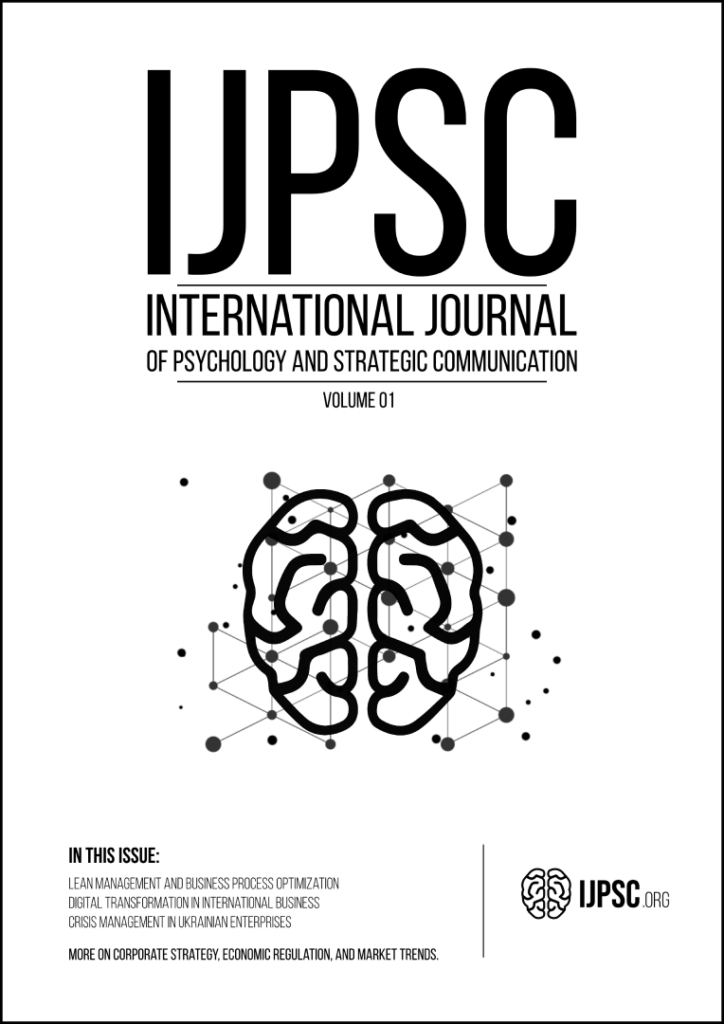Submission Guidelines
Welcome to the International Journal of Psychology and Strategic Communication (IJPSC) Manuscript Submission & Peer-Review System
We are pleased to announce that the International Journal of Psychology and Strategic Communication now offers two distinct categories of published content: peer-reviewed articles and non-peer-reviewed contributions.
Our goal is to foster both academic rigor and open dialogue in the fields of psychology, strategic governance, change management, and communication. To serve the needs of our diverse readership — which includes scholars, practitioners, and policy-makers — we now differentiate clearly between these two types of contributions.
Peer-Reviewed Articles
Peer-reviewed articles undergo a rigorous evaluation process involving independent, anonymous academic reviewers. Submissions in this category are expected to demonstrate theoretical depth, methodological rigor, and relevance to the journal’s focus areas.
Accepted peer-reviewed articles will be:
-
- Clearly marked with a visual divider and labeled as “Peer-Reviewed Article” on both the article page and in the table of contents.
- Highlighted using a distinct visual layout, including horizontal separator lines and color-coded elements to ensure maximum visibility and transparency.
- Published with full reference information, including DOI and review metadata where applicable.
▬▬▬▬▬▬▬▬▬▬▬▬▬▬▬▬▬▬▬▬▬▬▬▬▬▬▬▬▬▬▬▬▬▬▬▬▬▬▬▬▬▬▬▬▬▬
🔍 DOUBLE-BLIND PEER-REVIEWED ARTICLE
This article has been evaluated and accepted through a formal double-blind peer-review process.
▬▬▬▬▬▬▬▬▬▬▬▬▬▬▬▬▬▬▬▬▬▬▬▬▬▬▬▬▬▬▬▬▬▬▬▬▬▬▬▬▬▬▬▬▬▬
📌 Please note: There is no publication fee for peer-reviewed articles.
Authors wishing to submit to either category can do so through our manuscript management system at:
manuscriptlink.com/journals/ijpsc/
Non-Peer-Reviewed Contributions
The journal will also continue to publish high-quality essays, commentaries, case studies, and conceptual pieces that have not undergone formal peer review. These submissions are evaluated by the editorial team and are intended to stimulate dialogue, share practical insights, and explore emerging ideas in a timely manner. While non-peer-reviewed contributions do not carry the same academic designation, they play an essential role in bridging theory and practice, and in reflecting the dynamic nature of our field.
📌 Please note: There is no publication fee for non-peer-reviewed articles.
Submit your article for a non-peer-reviewed contribution to: editor@ijpsc.org
Submission Process
Before submitting your manuscript to the International Journal of Psychology and Strategic Communication, please ensure that the following items are complete. Submissions that do not meet these criteria may be returned for revision prior to review.
-
- The manuscript follows the APA 6th Edition citation and formatting style.
- The manuscript has been prepared using the journal’s official Word template.
- The manuscript is between 4,000 and 8,000 words, including references.
- The submission includes a separate title page with author(s) information.
- The main manuscript file is anonymized (no author names or affiliations).
- An abstract (150–250 words) is included.
- Keywords (3–6) are listed below the abstract.
- All tables and figures are clearly labeled and referenced in the text.
- References are complete and consistently formatted.
- The file is submitted in .docx format (no PDFs for manuscript files).
- A short biographical note (2–3 sentences) for each author is provided on the title page.
Downloads
We look forward to receiving your contributions and to supporting meaningful scholarly exchange across disciplines.
Formatting Guidelines
- https://nc.stierl.net/s/ijpsc_template
- Numbering:
Always start with 1. Use consistent spacing and alignment for all numbered items. - Spacing before/after sections:
- 5 blank lines before the Title
- 1 blank line between Abstract and Keywords
- 1 blank line, 1 horizontal line, and 1 blank line between Keywords and Problem Statement
- Page layout (custom margins):
- Top: 2.25 cm
- Bottom: 1.75 cm
- Left: 1.75 cm
- Right: 1.75 cm
- Graphics and Figures:
Only black and white graphics, tables, or figures are allowed. No color elements. - Indentation:
- No indent after headings, lists, or figure/table captions
- References:
- Add a blank line or page break before References
- Use proper author-date format (APA 6)
- Remove all hyperlinks from references
Reference Management Recommendation
To ensure consistency, accuracy, and efficiency in managing citations and bibliographies, authors are strongly encouraged to use a reference management tool such as Zotero, Mendeley, or EndNote when preparing their manuscripts.
We especially recommend Zotero – a free, open-source, easy-to-use research assistant that helps you collect, organize, annotate, cite, and share your sources. Zotero supports over 9,000 citation styles, including APA 6th edition, and integrates seamlessly with Word, LibreOffice, and Google Docs.
Key features include:
-
- One-click reference collection from academic databases and websites
- Automatic bibliography generation
- Flexible organization with folders, tags, and saved searches
- Cloud synchronization across devices
- Group libraries for collaborative research
- Full data privacy and user control
Zotero is available for Mac, Windows, Linux, and iOS.
For quick citations without installing software, you can also use ZoteroBib, a streamlined browser-based tool for generating bibliographies.
To learn more or download Zotero, visit: https://www.zotero.org
Using a citation manager helps you focus more on your research and less on formatting—while ensuring that all references meet the standards of the International Journal of Psychology and Strategic Communication.


